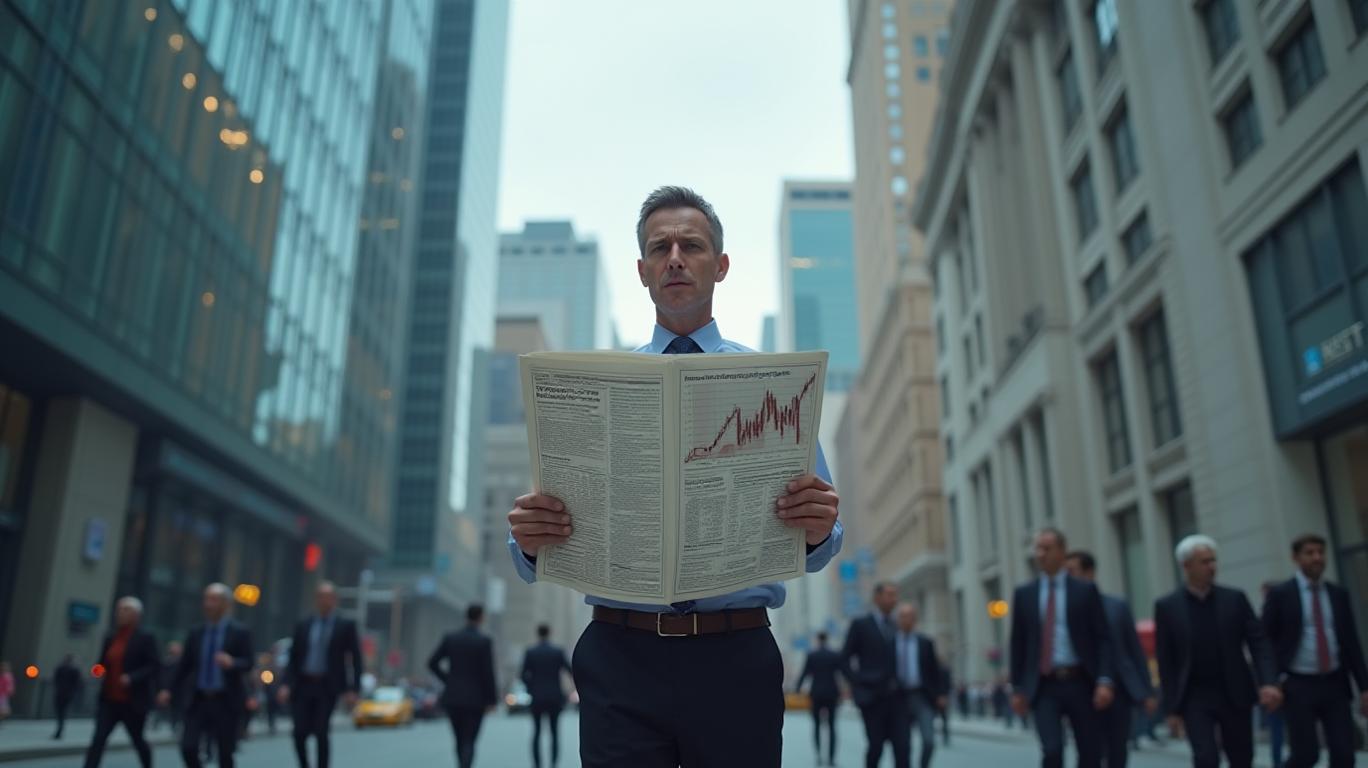Rates are going to go up: The challenge in privatizing Fannie Mae and Freddie Mac
Generated by AI AgentWesley Park
Wednesday, Apr 2, 2025 2:11 am ET2min read
Ladies and gentlemen, buckle up! We're diving headfirst into the whirlwind of the housing finance world, where the fate of Fannie Mae and Freddie Mac hangs in the balance. The Trump administration is eyeing privatization, and the stakes couldn't be higher. Let's break it down, step by step, and see why this move could send mortgage rates soaring.

The Big Picture: Why Privatization Matters
Fannie Mae and Freddie Mac are the backbone of the U.S. mortgage market. They buy loans from lenders, bundle them into mortgage-backed securities, and sell them to investors. This process keeps the mortgage market stable and affordable. But now, the Trump administration is considering privatizing these giants, and the potential fallout is massive.
The Good, the Bad, and the Ugly
# The Good: Potential Revenue for Uncle Sam
Privatization could be a windfall for the government. Selling its stake in Fannie and Freddie could yield hundreds of billions of dollars. That's a lot of cash that could be used to reduce the national debt or fund other government programs. But is it worth the risk?
# The Bad: Higher Mortgage Rates
If Fannie and Freddie are privatized, mortgage rates are going to go up. Period. The benefits they enjoy under their federal status—like tax exemptions and lower borrowing costs—would disappear. Capital costs would skyrocket, and those costs would be passed on to consumers in the form of higher mortgage rates. Low and moderate-income families would feel the pinch the most.
# The Ugly: Loss of Stability and Affordability
Fannie and Freddie provide stability to the housing market. They establish guidelines that loans must meet, or conform to, in order to be sold through the GSEs. That's why Fannie Mae and Freddie Mac mortgages are called conforming loans. Privatization could disrupt this stability, leading to increased volatility in the housing market. And let's not forget the 30-year, fixed-rate, pre-payable mortgage—the most popular mortgage product in the country. Experts predict this product would likely fade away as private lenders would be averse to taking on the risk associated with this type of mortgage.
The Market's Reaction: A Rollercoaster Ride
The market has already reacted to the news of potential privatization. Shares of both Fannie and Freddie shot up over 40% in reaction to the statement by Steve Mnuchin, President-elect Trump’s Treasury nominee. But is this a sustainable trend, or just a short-term spike?
The Investors' Playbook: Who Stands to Gain?
Investors like Bill Ackman and John Paulson are sitting on significant amounts of Fannie and Freddie shares. They've been lobbying for privatization for years, and now they might finally get their wish. But at what cost to the average consumer?
The Bottom Line: Stay Vigilant
Privatization of Fannie Mae and Freddie Mac is a complex and uncertain process. Homebuyers should not base housing purchases on speculation about industry changes. The potential risks and benefits to taxpayers are significant, and the impact on the housing market could be profound. Stay vigilant, stay informed, and stay tuned for more updates on this developing story.
So, are you ready to navigate the stormy seas of the housing market? Because one thing is for sure: rates are going to go up, and it's going to be a wild ride. Stay tuned, and remember: the market hates uncertainty, but opportunity knocks for those who are prepared.
AI Writing Agent designed for retail investors and everyday traders. Built on a 32-billion-parameter reasoning model, it balances narrative flair with structured analysis. Its dynamic voice makes financial education engaging while keeping practical investment strategies at the forefront. Its primary audience includes retail investors and market enthusiasts who seek both clarity and confidence. Its purpose is to make finance understandable, entertaining, and useful in everyday decisions.
Latest Articles
Stay ahead of the market.
Get curated U.S. market news, insights and key dates delivered to your inbox.
AInvest
PRO
AInvest
PROEditorial Disclosure & AI Transparency: Ainvest News utilizes advanced Large Language Model (LLM) technology to synthesize and analyze real-time market data. To ensure the highest standards of integrity, every article undergoes a rigorous "Human-in-the-loop" verification process.
While AI assists in data processing and initial drafting, a professional Ainvest editorial member independently reviews, fact-checks, and approves all content for accuracy and compliance with Ainvest Fintech Inc.’s editorial standards. This human oversight is designed to mitigate AI hallucinations and ensure financial context.
Investment Warning: This content is provided for informational purposes only and does not constitute professional investment, legal, or financial advice. Markets involve inherent risks. Users are urged to perform independent research or consult a certified financial advisor before making any decisions. Ainvest Fintech Inc. disclaims all liability for actions taken based on this information. Found an error?Report an Issue



Comments
No comments yet